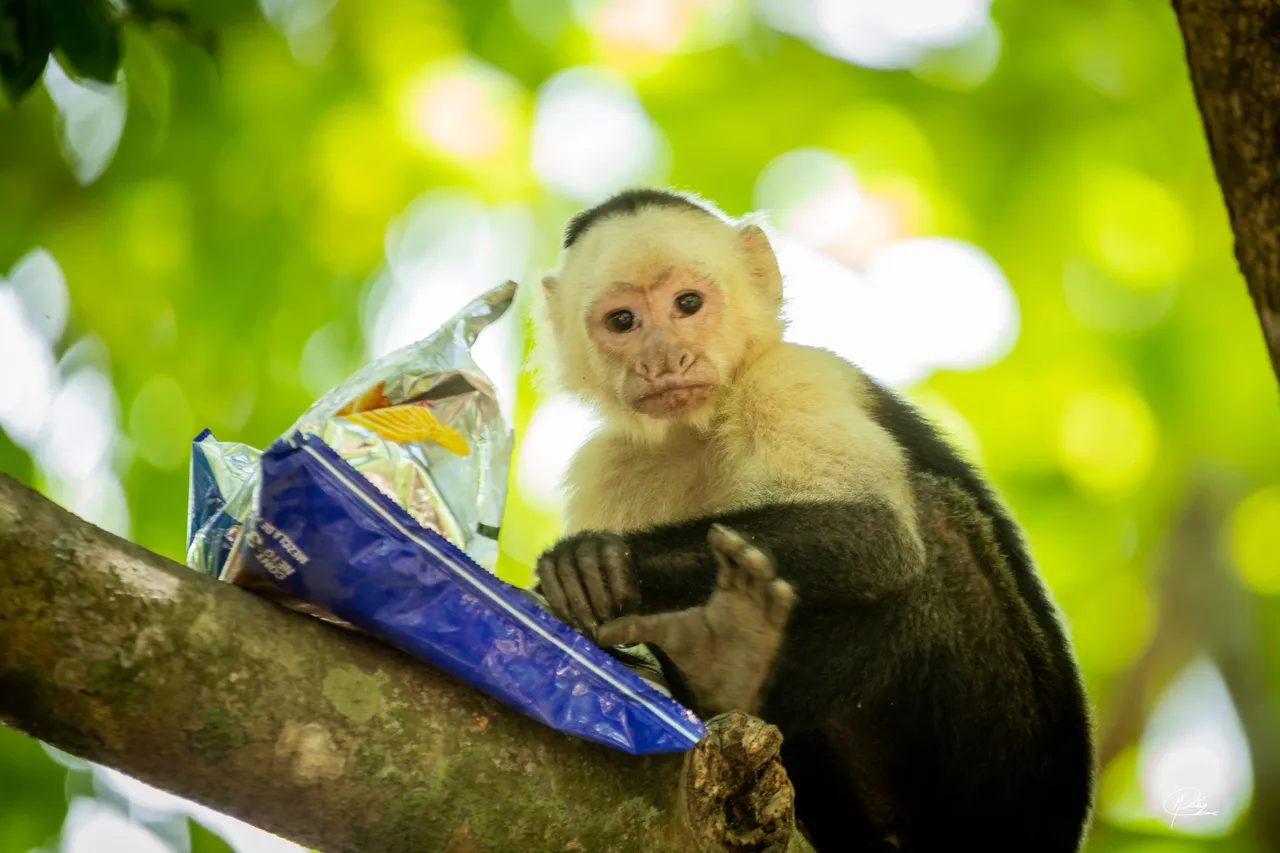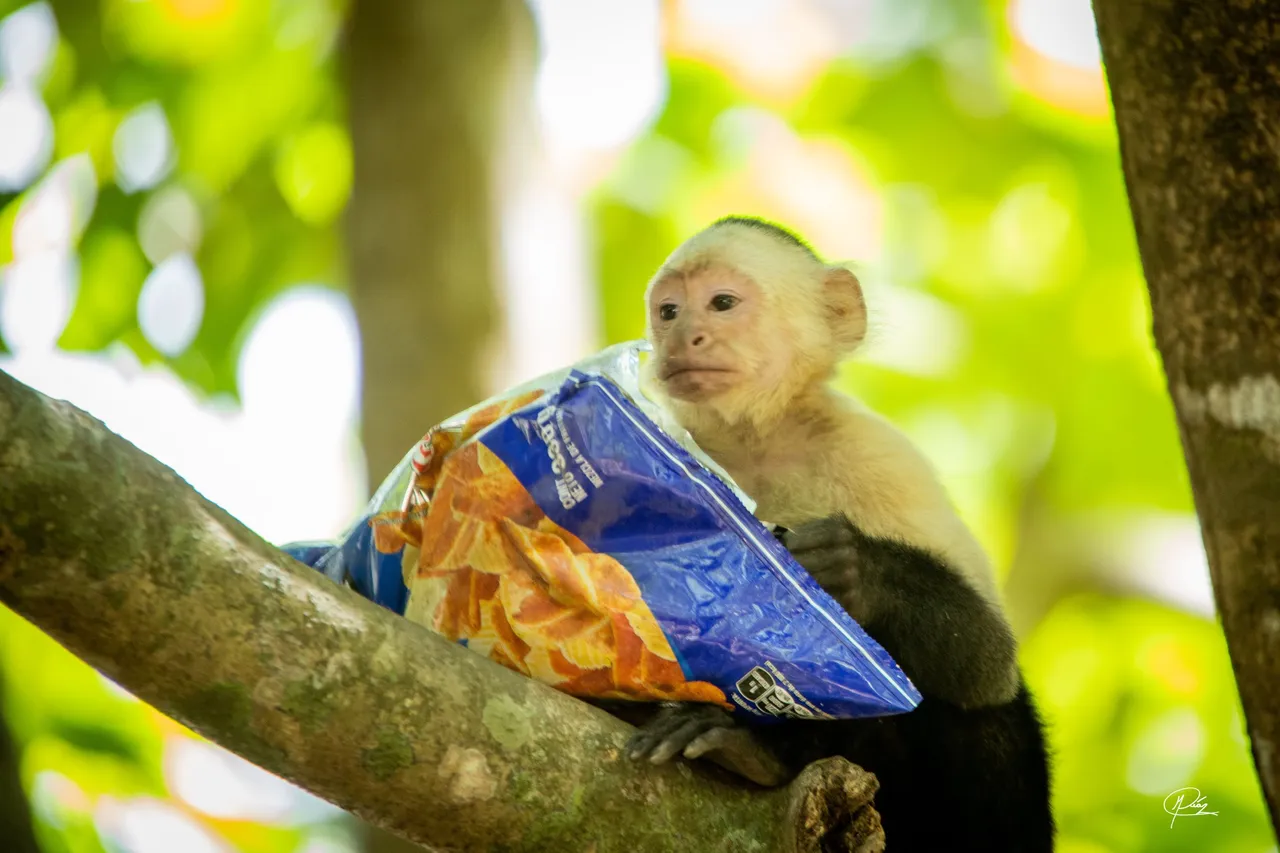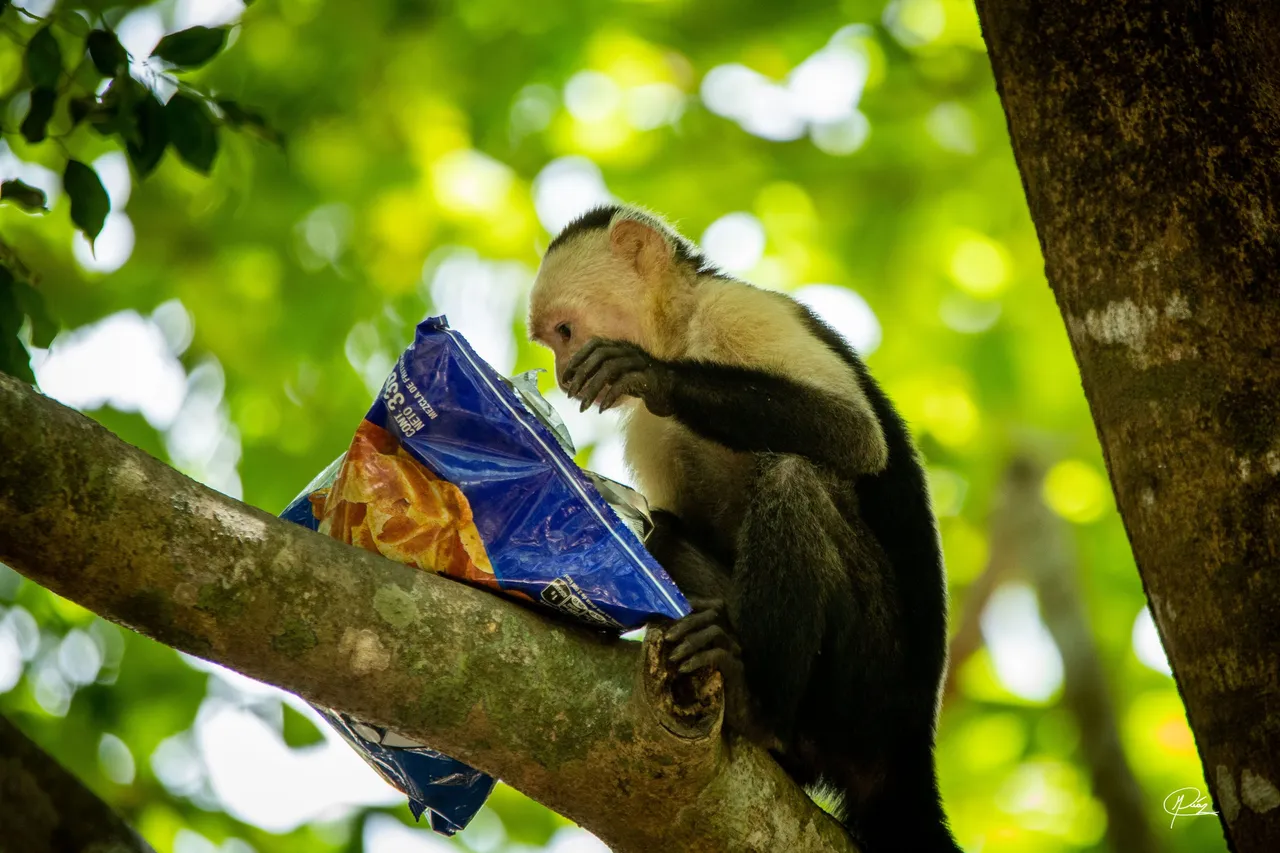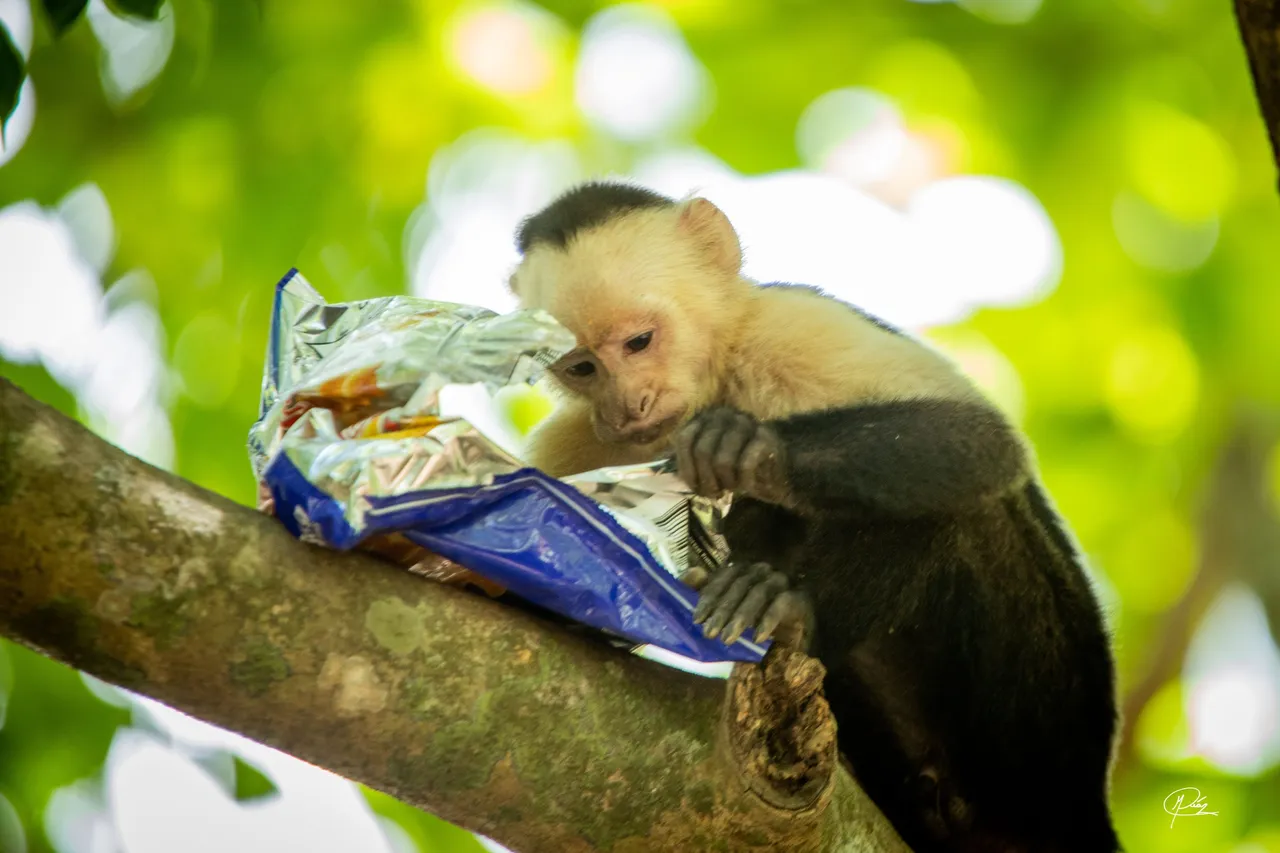
When I visit some places in Costa Rica where monkeys are present, I am prepared to avoid losing my things to these little thieves. There have been cases where the monkeys have taken wallets, glasses, telephones and even car keys. But the most worrying point I am writing to you about today is the theft of food and waste that we leave in some tourist sites.

For some time this has been becoming a real problem, especially groups of monkeys such as capuchins, which are more risky to approach humans. This was a sad scene that I observed in the Curú wildlife refuge, in the Pacific of Costa Rica. Monkeys have become thieves of food that visitors neglect, this behavior has become so common that now monkeys prefer this type of food over natural. This is easier for them, even many tourists come to feed them to be able to take a picture.

Some individuals have even learned to rummage through garbage cans in search of food remains, this was the case of the cappuccino that I captured in these photographs. The problems that this behavior causes in monkeys are many, it has been found liver problems, cavities and greater ease of being attacked by parasites, among others. In addition, the garbage that the monkeys carry away, they roll into the wooded areas, thus increasing the problem of contamination.

An obvious solution is for tourists to stop feeding the monkeys, but a shift in consciousness with waste management is also needed. Many protected areas do not have the capacity or resources to handle the volume of waste left by visitors, and not only in Costa Rica, this is something that is repeated in many tourist places around the world. The best way to approach it is that everyone is responsible for their food and waste, if you were able to bring it, then you are also able to take it back.
